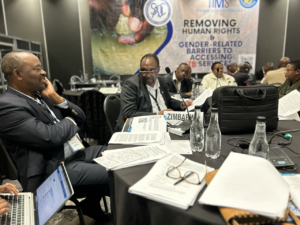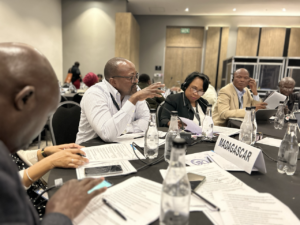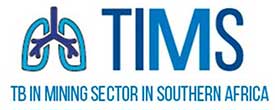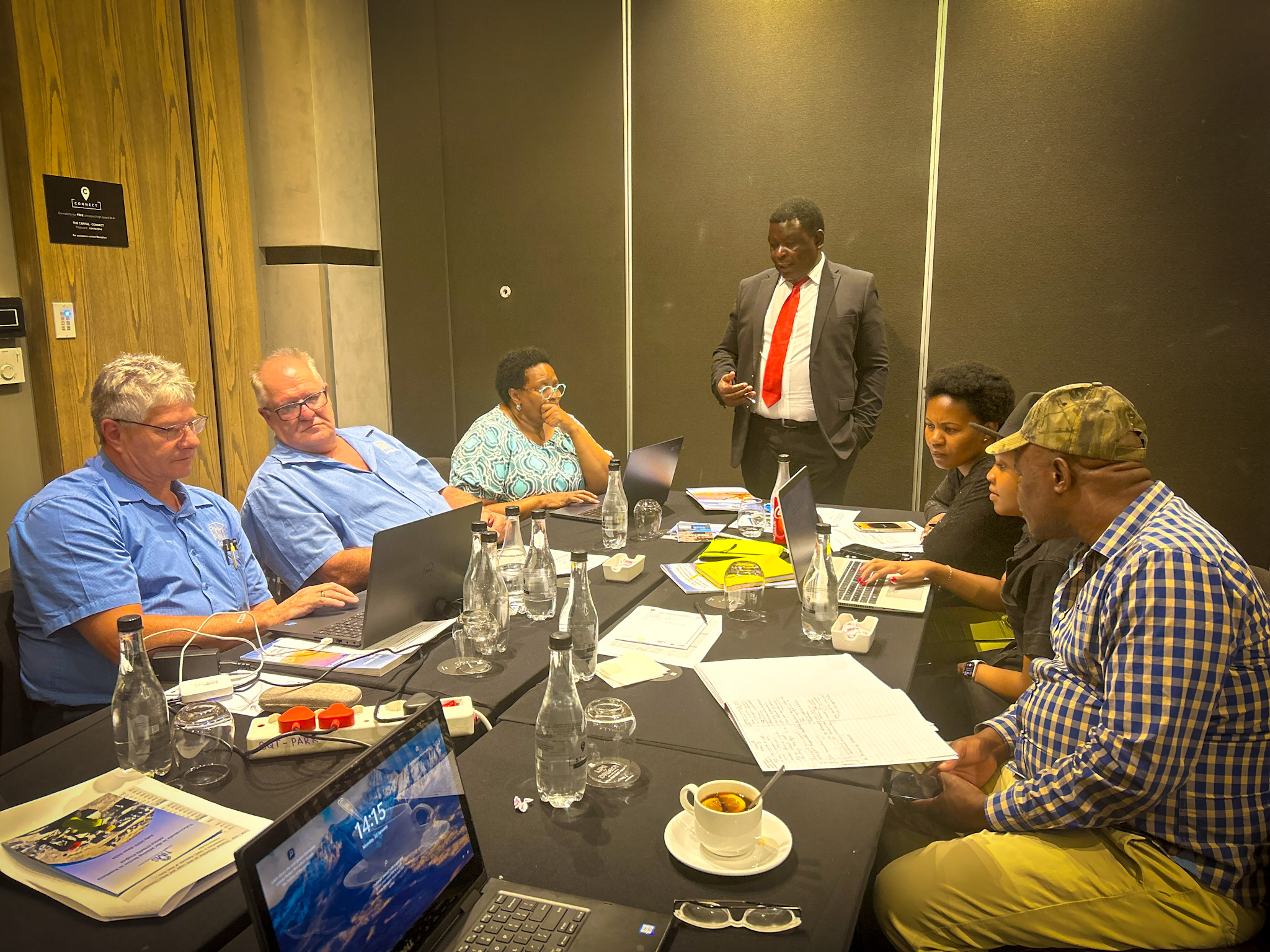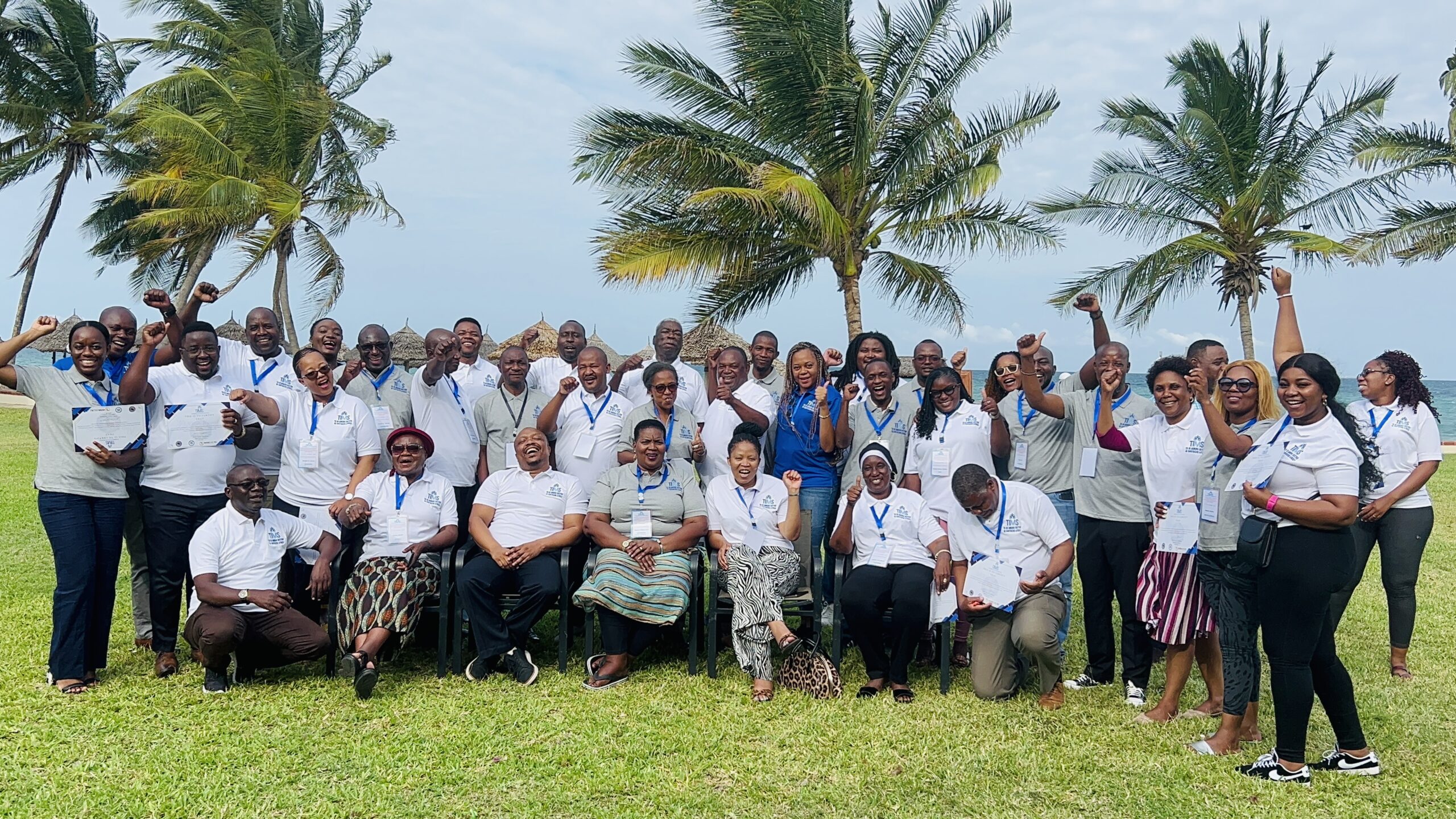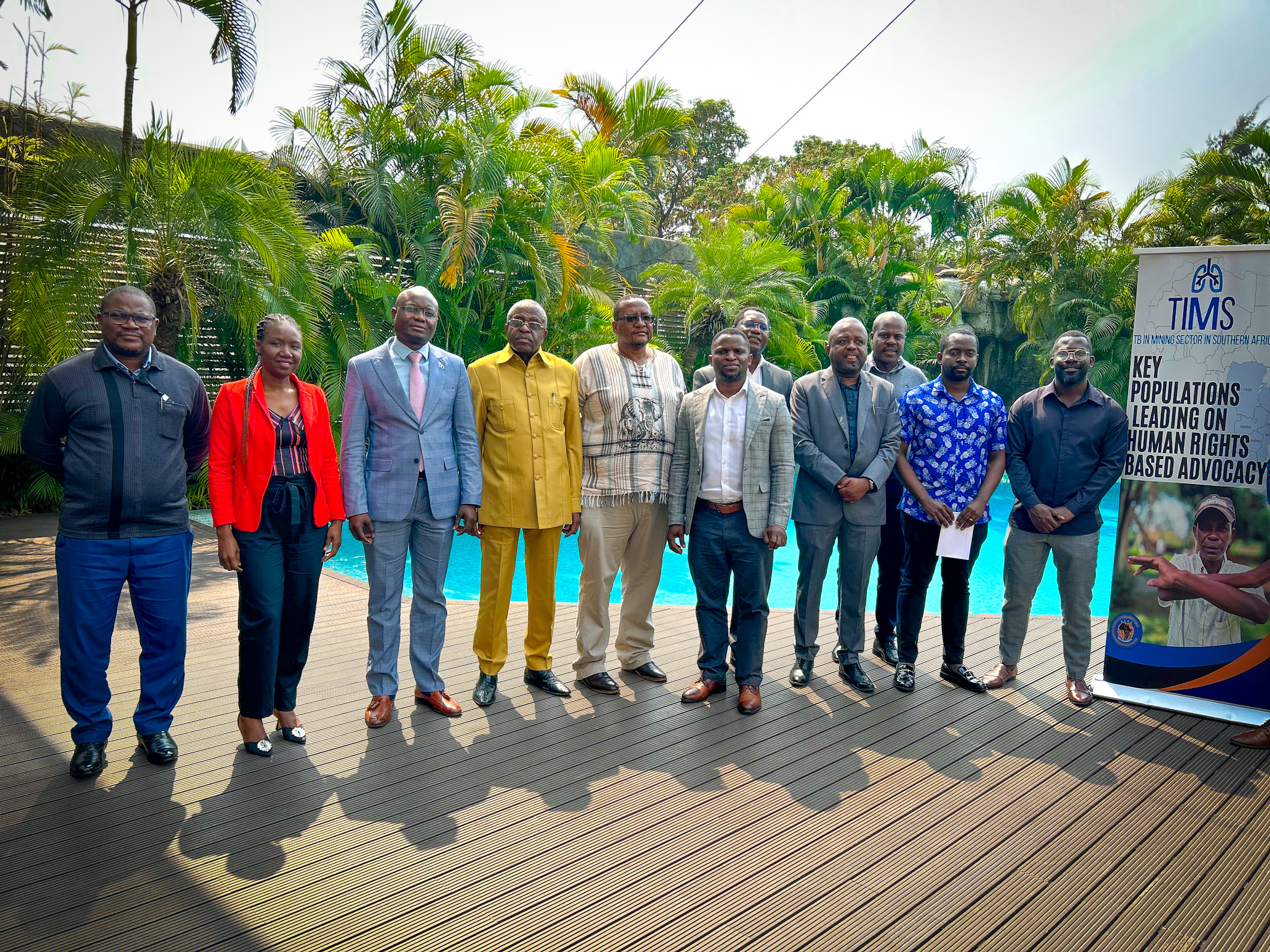In a significant advance towards enhancing Mine Health and Safety (MHS) standards across the Southern…
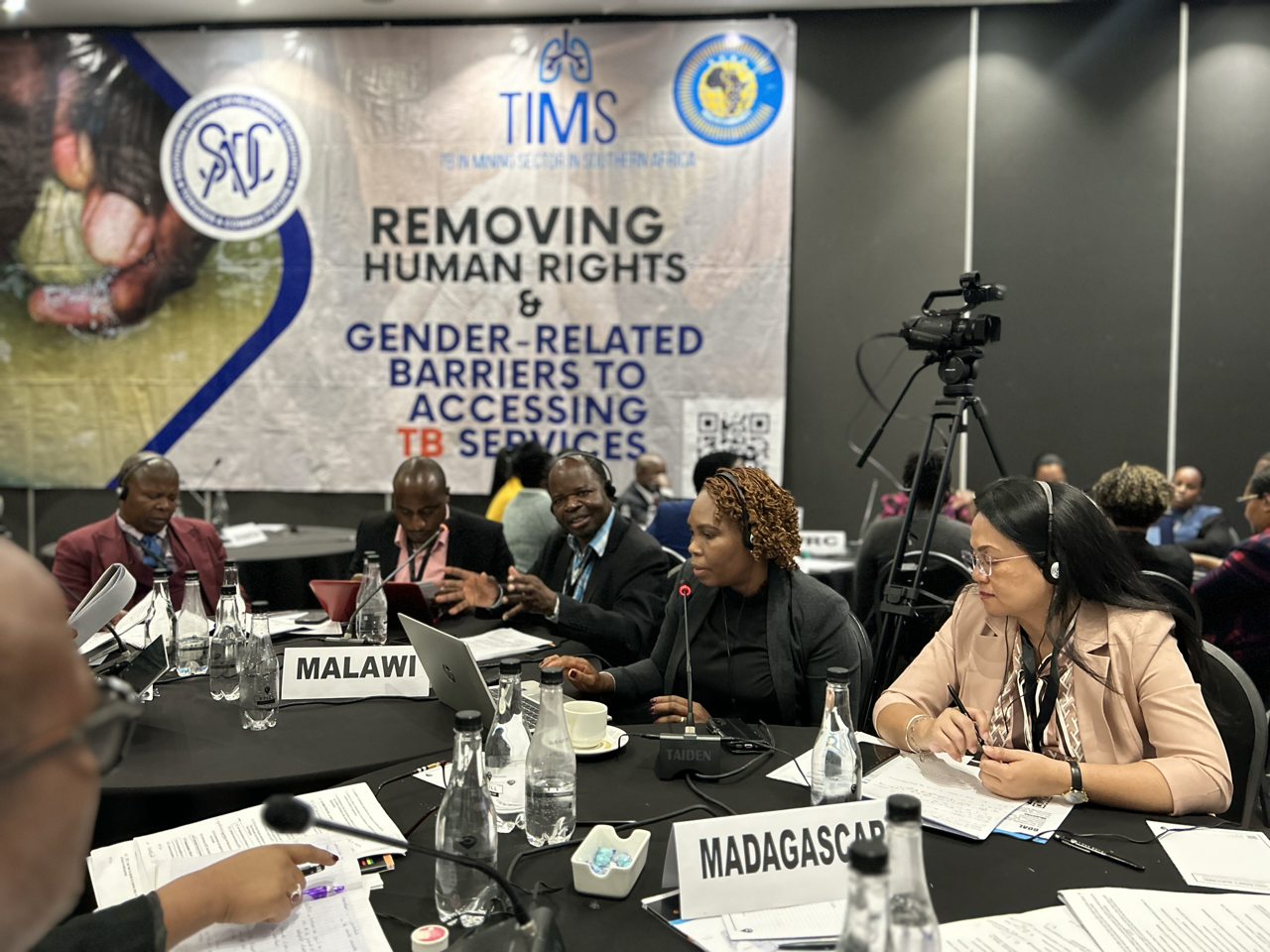
Successful Inaugural Meeting of SADC END TB Committee Marks Milestone in Regional Cooperation
SADC Ministers of Health and Ministers Responsible for HIV and AIDS noted that the previous governance structures under regional interventions such as the Sothern Africa Tuberculosis and Health Systems Support Project (SATBHSS), SADC Communicable Diseases Project, SADC Cross Border HIV Project and the Global Fund TB in the Mining Sector (TIMS) in Southern Africa Project did not have a multi-sectoral participation and lacked the SADC institutional anchor to ensure sustainability beyond the projects and programme. In this regard, at their Joint meeting held in Kinshasa, Democratic Republic of Congo, 7-11 November 2022 approved the establishment of a TIMS governance structure which will also be instrumental in providing a coordinated, multi-sectoral response towards addressing the TB epidemic in SADC region. This structure, which was named SADC End Tuberculosis Committee (SETC) is a sub-committee of the Committee of the SADC Ministers of Health.
In administering this ministerial decision The Southern African Development Community (SADC) with the support of the ECSA Health Community took a significant step forward in the fight against tuberculosis (TB) with the successful inaugural meeting of the SADC END TB Committee (SETC) held from 6th to 9th July in Johannesburg. This four-day meeting brought together delegates from 12 countries, namely Lesotho, Eswatini, Botswana, Tanzania, Malawi, Zimbabwe, Zambia, Mozambique, Madagascar, the Democratic Republic of Congo (DRC), Seychelles, and the host country, South Africa.
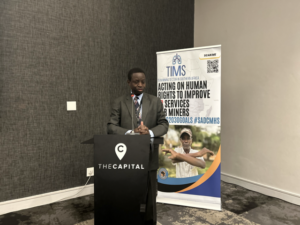
The meeting received a warm welcome from Prof. Yoswa Dambisya, the Director General of the East, Central and Southern Africa Health Community (ECSA-HC). In his welcoming remarks, Prof. Dambisya commended the efforts made by SADC member states in ensuring the sustainability of the Tuberculosis in the Mining Sector (TIMS) initiative beyond donor funding. He stated, “It is our pleasure that we have reached this stage, where we are beginning to concretize one of the major sustainability mechanisms that will outlive the support of the Global Fund through the TIMS initiative.”
Dr. Willy Amis, speaking on behalf of the SADC Executive Secretary Mr. Elias Magosi, echoed this sentiment in his welcome note, emphasizing the urgent need to address TB and other occupational lung diseases in the mining sector, which have caused significant socio-economic disruptions for decades. Dr. Amis expressed his appreciation for the clear and strong commitment of SADC heads of states and government in tackling this public health crisis, emphasizing the importance of a comprehensive, all-government approach.
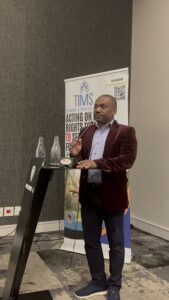
To address the TB epidemic in the SADC region will require a stronger collaboration between key stakeholders including government sectors such as the mining sector, Labour, civil society, Health, mining communities and peri mining communities.
One of the primary objectives of the meeting was to finalize the Terms of Reference (TORs) for the SETC. During the first two days, representatives from each country reviewed the draft TORs and provided their inputs. The collaborative effort led to the successful completion of the TORs, which paved the way for the election of office bearers.
On the third day of the meeting, the delegates elected Prof. Robert Djeka from South Africa as the Chairperson of the SETC. Prof. Djeka, a renowned expert in TB control, In assuming his role, Prof. Djeka expressed gratitude for the trust placed in him and recognized the immense responsibility faced by the region. He stated, “We have been lamenting for many years for things that we want to see happening but are not happening, but our Ministers have come up with a plan to say let’s have this committee as part of the solution. We have two choices here: to succeed or to fail. By the look of everyone’s body language, I see we have chosen to succeed.”
Dr. Petrina Nghideng from Namibia was elected as the Vice Chairperson. Both Prof. Ndjeka and Dr. Nghideng will serve a four-year term in their respective roles. Additionally, three subcommittees were formed, focusing on advocacy and resource mobilization, TIMS (TB in Mines and Silicosis) initiatives, and scientific research.
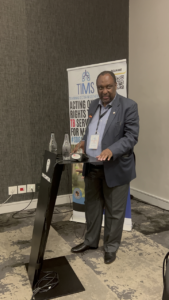
Under the leadership of Chairperson Prof. Ndjeka, the committee swiftly moved forward, focusing on drafting a workplan to guide the effective implementation of their objectives. The SETC aims to enhance collaboration among SADC member states in their efforts to combat TB, particularly in the mining sector. TB remains a significant public health challenge in the region, and the mining industry has been identified as a key sector with high TB prevalence. The committee will play a crucial role in coordinating regional initiatives, sharing best practices, and advocating for increased resources and support for TB control.
 In addition to finalizing the TORs and electing office bearers, the meeting served as a platform appraise the countries on the gains that have been made from the past two phases of the TIMS grant and deliberate on how best countries can sustain them but also progress being made under the current phase which runs between 2021-2024. The discussions were enriched by the diverse perspectives and expertise brought by representatives from different countries.
In addition to finalizing the TORs and electing office bearers, the meeting served as a platform appraise the countries on the gains that have been made from the past two phases of the TIMS grant and deliberate on how best countries can sustain them but also progress being made under the current phase which runs between 2021-2024. The discussions were enriched by the diverse perspectives and expertise brought by representatives from different countries.
The successful inaugural meeting of the SADC END TB Committee marks a significant milestone in regional cooperation and signifies the commitment of SADC member states to combat TB. With the SETC now in place, there is renewed hope for stronger collaboration and coordinated efforts to eliminate TB in the Southern African region. As the committee begins its work, it is expected to drive progress, mobilize resources, and accelerate the implementation of effective TB control strategies. Through this united front, the SADC region is poised to make significant strides towards ending the TB epidemic and improving the health and well-being of its population.The secretariat appreciates the support that the Global Fund has provided for the past seven years investing more than 62 Million dollars under the TB in the Mining Sector grant.
